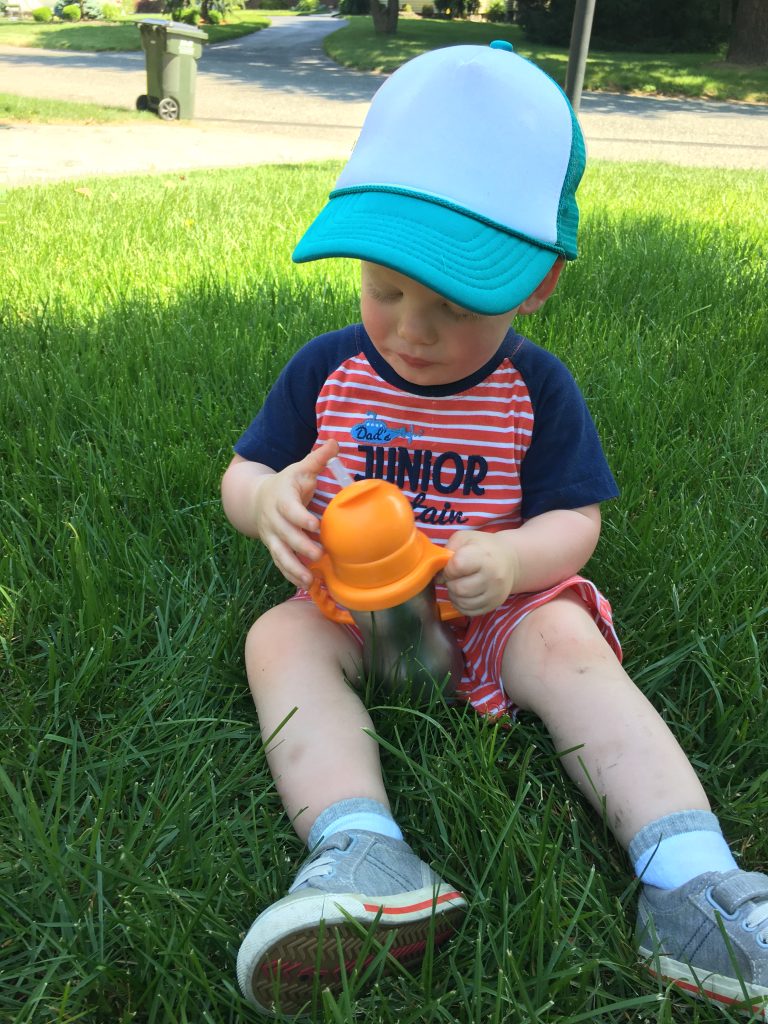Sigh…the dairy issue. When most of us think of milk, “it does a body good” seems to be ingrained in our minds, right? Or, that milk helps to build strong bones. Well, I drank a tall glass of milk ALL throughout my childhood and teenage years only to be diagnosed with osteopenia at 24 years old. If anything, it damaged my bones. I write more about calcium being way beyond just a glass of milk here. I’m living proof that both of those slogans are misleading.
I’m not insinuating that milk is bad. In fact, raw milk is incredibly nutritious and delicious. However, the milk that most of us drink is pasteurized, meaning it’s been treated with heat to strip it of its enzymes to help us digest it (hello, lactose intolerance), nutrients and beneficial bacteria (yes, beneficial gut bacteria!). Not to mention that the care of the cow is always questionable when milk is pasteurized. Were they fed genetically modified grains, given antibiotics and/or hormones, or ever allowed to see the light of day? Most of us are under the notion that unpasteurized (raw) milk is dangerous to consume, when in turn pasteurized dairy is far more risky. Since the majority of store bought dairy is pasteurized and of questionable quality, more people tend to have some kind of intolerance to it…including little ones. Cow’s milk is meant for baby calves. Breast milk is meant for baby humans. While introducing some quality cow’s dairy (organic, grass fed, whole milk) may be something to consider down the road, it may be something to forgo right now since it will only complicate things.
So that I’m not all Debbie Downer on you, you’d be excited to know that goat or sheep’s milk is much easier to tolerate than cow’s milk. Its composition is much more similar to humans’ milk, allowing our bodies and babies’ bodies to easily digest it. Because there has been such a rise in cow’s milk related issues, goat and sheep’s milk products are more available on the shelves. It’s very exciting!
When considering giving up dairy, one must also consider which milk alternative to offer to your child. I go into detail about this in my podcast, milk alternatives. It’s important to remember that a healthy, balanced diet is what’s important for a growing child (obviously once solid foods are introduced). Milk does not have to be a part of that, but instead can just be a complementary drink here and there. You might want to read those last two sentences once again since it goes against what you’ve always been told…to serve milk to your baby/toddler to help them grow.
With regard to other dairy products such as cheese, just beware of the dairy-alternative products on the shelves. I’ve noticed how quickly parents stock up on “dairy free” options after they’ve read or been told that their child should avoid dairy. Just because they’re dairy-free does not mean that they are healthy, and many times they are certainly not nutrient dense. Usually a quick look at the ingredient list will reveal dyes, words you cannot pronounce, or ingredients you may not recognize, signifying that this is not a “food” that you should be offering your child. Even worse, many of them are soy-based. Yuck. A fun analogy that I live by when it comes to food is J.E.R.F. which stands for Just Eat Real Food. Fake cheese is NOT real food. However, when you come across raw cheese, that’s a wonderful option to offer your child, in small quantities when they’re eating solids.
This information is here to help support your along your child’s health journey and not to replace any medical advice or diagnosis. Be sure to keep in constant contact with your child’s pediatrician and most importantly trust your instincts as a parent. Know that I’m always here for further assistance. Wishing you and your child a happy and healthy gut!
I hope that you found it helpful. If you haven’t already purchased my e-Book, please use the code babyfood5 for $5 off. Thank you for your support.

